Science Team
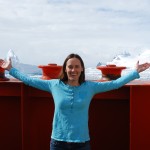 Dr. Grace Saba (Lead Principle Investigator), Assistant Research Professor, Rutgers University
Dr. Grace Saba (Lead Principle Investigator), Assistant Research Professor, Rutgers University
Grace grew up on a farm in Harveyville, Kansas. Observing the tadpoles and crawdads of Dragoon Creek in her backyard initiated her path to become a marine scientist. She received her bachelor’s degree in Aquatic Biology from the University of California, Santa Barbara in 2002. She then moved to Virginia and completed her Ph.D. in Marine Science in 2010 at the Virginia Institute of Marine Science, College of William & Mary. She has been at the Institute of Marine and Coastal Sciences of Rutgers University, New Jersey since 2010 and is currently an Assistant Research Professor. Her broad research interests are in the fields of marine plankton ecology, food web dynamics, biogeochemical cycling, and vertical particle flux with focus on how climate change, including ocean acidification, impacts these processes. The main emphasis of her current research is to identify what triggers changes in algal abundance, composition, physiology, and overall quality, and how this affects higher trophic levels (zooplankton, fish) and nutrient feedback processes. The specific projects she is currently working on are: 1) Determine the effects of increased carbon dioxide (CO2) on krill physiology, phytoplankton communities and biogeochemical cycling in the Western Antarctic Peninsula (WAP) region; 2) understanding how large scale forcing and physical factors drive phytoplankton blooms and krill recruitment in the WAP region; and 3) determining physiological mechanisms and biological pathways that organisms use to adapt to various environmental stressors – all of which use an interdisciplinary approach to solving ecologically important, complex problems. Her research journey has allowed her the privilege to study organisms in many oceans, including the Southern Ocean, from the surface to hydrothermal vents in the deep sea. Her goals for Project PARKA are to contribute to Science, Technology, Engineering, and Mathematics Education (STEM) education by introducing marine science to the classrooms of Kansas High Schools in the hopes that through education, interaction, and hands-on experience, Kansas students can and will branch out to pursue higher level education in the sciences.
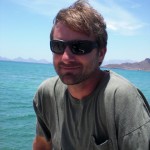 Dr. Brad Seibel (co-Investigator), Associate Professor, University of Rhode Island
Dr. Brad Seibel (co-Investigator), Associate Professor, University of Rhode Island
Brad received his B.A. in Biology and Ph.D. in Biology from the University of California, Santa Barbara. As a comparative animal physiologist, he studies how animals work in extreme environments. How are animals specialized to extremely cold temperatures in polar environments? How do animals cope with low oxygen in some parts of the deep sea? Will existing physiological abilities be sufficient to deal with changing climate and ocean acidification? His lab addresses these questions by comparing physiological performance in diverse animals from widely varying environments. Specifically we measure rates of oxygen consumption and ammonia excretion, activities of key metabolic enzymes, blood oxygen binding ability, osmolyte concentrations, and acid-base balance under controlled conditions in the laboratory, often on board research ships. Using physiological and biochemical tools, he is also able to address questions in biological oceanography. For example, metabolic rate measurements in oceanic animals are used to calculate the contribution of such animals to the flux of carbon from the atmosphere to the deep sea. Their travels to remote parts of the world also provide opportunities to observe species seldom, if ever, seen by humans. We’ve made discoveries of species new to science and have observed new behaviors by other species.
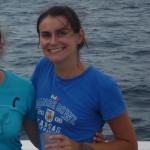 Abigail Bockus, Ph.D. candidate, University of Rhode Island
Abigail Bockus, Ph.D. candidate, University of Rhode Island
Abigail was born and raised in Manhattan, KS. She received her bachelor’s degree in Biology from the University of Kansas in 2009. After spending a couple years conducting biomedical research in association with the University of Kansas Medical Center, she decided to apply her heavily molecular background to the field of marine biology. She is currently pursuing her Ph.D. at the University of Rhode Island in comparative marine physiology. Her research is focused on the accumulation and use of a small organic osmolyte, trimethylamine oxide, and how this molecule may be used to combat environmental stressors, specifically increases in hydrostatic pressure and temperature. The nature of her research allows her to travel to many exciting field locations and study a variety of marine organisms, including: Hawaiian deep-sea fish, Antarctic krill and Atlantic sharks.
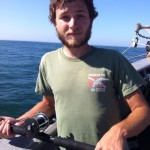 Ryan Fantasia, undergraduate student, Rutgers University
Ryan Fantasia, undergraduate student, Rutgers University
Ryan grew up relatively close to the ocean, and spent most of his time outside in the woods or near the bayshore fishing, and collecting garbage (treasure) that washed up from New York City. He knew from a fairly young age that he wanted to pursue some sort of an ocean-related career. Initially his interests fell in fisheries management, but the world of oceanography is diverse and far reaching, so as he learned more and more his interests were bound to change. He feels as though the allure of the ocean lead him to delve deeper into biology, ecology, pure sciences, and new, exciting technologies than he ever would have. More recently he has developed an interest in the marine microbial world, and would love to study how phytoplankton affect and respond to higher trophic levels and earth system cycles, especially in the rapidly changing climate we see today. By no means has he settled on this, though. Who knows what new and exciting ideas the ocean will bring forth tomorrow? He looks forward to learning much more this year at Palmer Research station, and perhaps changing his research interests altogether!
Education Team
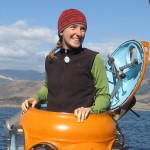 Kristin Hunter-Thomson, Outreach Coordinator, Rutgers University
Kristin Hunter-Thomson, Outreach Coordinator, Rutgers University
Kristin grew up splitting her time between the San Francisco, CA and Boston, MA areas, but always spending as much time near the ocean as possible. She received her B.A. in Biology and Environmental Studies from Williams College, her Masters of Arts in Teaching from Lewis and Clark College, and her Masters of Science in Marine Science from San Jose State University. Her current research interests are how to create high quality STEM educational materials for students and teachers that bring current ocean science into the classroom. Through her work, Kristin fosters conversations and collaborations between teachers and ocean scientists, while also providing science rich lesson plans for the use in classrooms. In doing so, she works to make ocean science accessible to teachers and thus to students, which broadens the communities understanding of ocean science and the incredible ecosystem of the ocean.
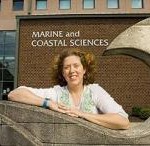 Janice McDonnell, Science Engineering & Technology Agent, Associate Professor, Rutgers University
Janice McDonnell, Science Engineering & Technology Agent, Associate Professor, Rutgers University
Her research interests include exploring how people learn and how to achieve “high quality” collaborations among scientists and educators. She particularly interested in how these collaborations can result in improved audience outcomes/impacts. She also is interested in how can we engage K-12 science teachers to integrate ocean sciences topics and effective science pedagogy (including skills, application and follow up) in their courses. Her work with the COOL Classroom involves exploring how can we bring technology and the real-time data they collect into classrooms in a meaningful and effective manner and how can technological tools such as Ocean Observing Systems, and more generally, sensors be utilized or designed that promote inquiry based instruction. Finally, she enjoys learning about and applying effective practices for assessing program/product impact (front end, formative, and summative levels) into instructional design.
